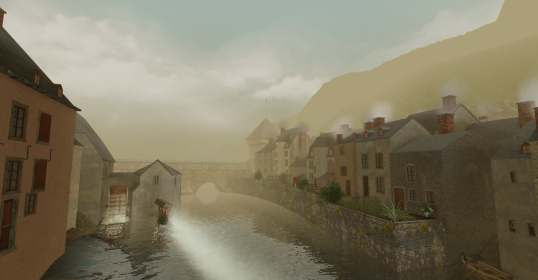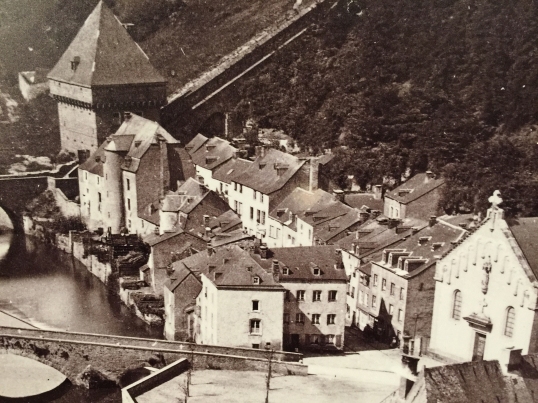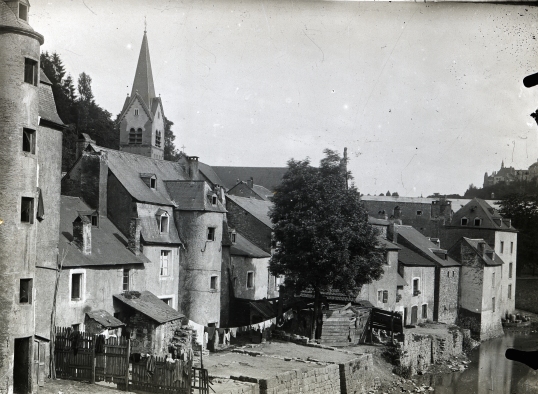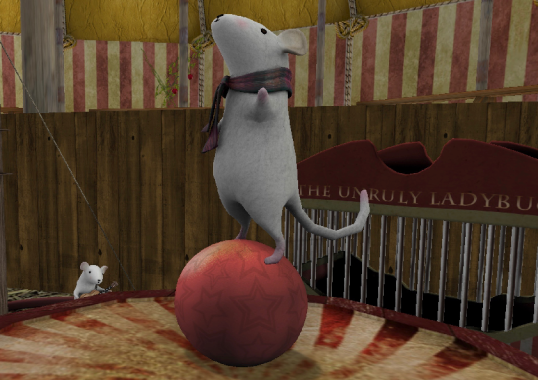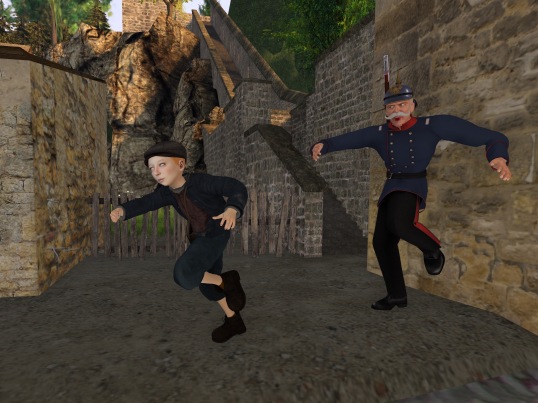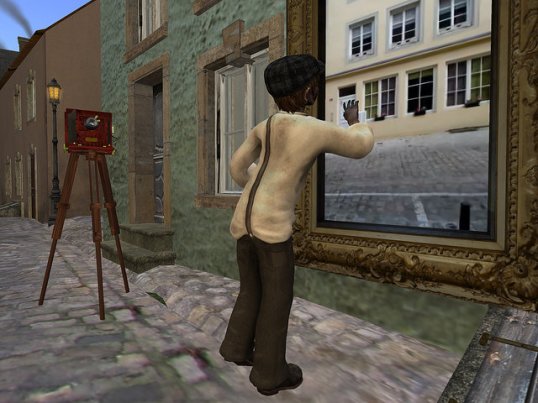
You may already know that I am active, assisting Hauptmann Weydert with an online computer-generated three-dimensional reconstruction of 1867 Luxembourg. Just recently this project developed a most unusual twist, linking the past with the present.
Visitors to two local history museums in Luxembourg are already able to wander through a digital reconstruction of the Pffafenthal district of the city, using virtual reality headgear or computer screens. As they meander through the city’s streets, they are able to witness first-hand the architecture and layout of the city, as it appeared one hundred and fifty years ago.
Now this computer generated reconstruction has a very usual addition: a time portal to the current city of Luxembourg in the form of a ‘mirror’. The surface of this ‘mirror’ displays a live stream, taken from a webcam mounted in a shop front in modern day Luxembourg. At the same time, a computer screen has been placed within the very same shop window, showing time-travelling visitors to the museum wandering around the very same position, but one hundred and fifty years in the past. This means that, as museum visitors explore the digital reconstruction of their city, they are able to look at a live stream of the very same location, outside in the modern day streets of today. However, the passers-by in the streets are also able to use the computer screen to peer back into the antics of the museum time-travelling visitors, as they explore the city one hundred years in the past.
So time-travelling museum visitors are able to view the modern-day Luxembourg citizens and, at the same time, these modern-day citizens can watch the time-travelling museum visitors. The two different parties are even able to communicate using text, animations or basic gestures.
Isn’t that a really incredible concept!

